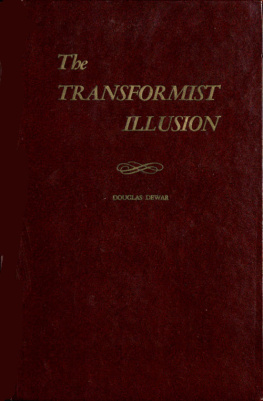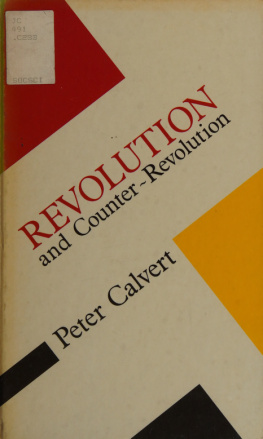Hugo Dewar - Revolution and Counter-Revolution in Hungary by Hugo Dewar and Daniel Norman 1957
Here you can read online Hugo Dewar - Revolution and Counter-Revolution in Hungary by Hugo Dewar and Daniel Norman 1957 full text of the book (entire story) in english for free. Download pdf and epub, get meaning, cover and reviews about this ebook. genre: Politics. Description of the work, (preface) as well as reviews are available. Best literature library LitArk.com created for fans of good reading and offers a wide selection of genres:
Romance novel
Science fiction
Adventure
Detective
Science
History
Home and family
Prose
Art
Politics
Computer
Non-fiction
Religion
Business
Children
Humor
Choose a favorite category and find really read worthwhile books. Enjoy immersion in the world of imagination, feel the emotions of the characters or learn something new for yourself, make an fascinating discovery.

- Book:Revolution and Counter-Revolution in Hungary by Hugo Dewar and Daniel Norman 1957
- Author:
- Genre:
- Rating:5 / 5
- Favourites:Add to favourites
- Your mark:
- 100
- 1
- 2
- 3
- 4
- 5
Revolution and Counter-Revolution in Hungary by Hugo Dewar and Daniel Norman 1957: summary, description and annotation
We offer to read an annotation, description, summary or preface (depends on what the author of the book "Revolution and Counter-Revolution in Hungary by Hugo Dewar and Daniel Norman 1957" wrote himself). If you haven't found the necessary information about the book — write in the comments, we will try to find it.
Revolution and Counter-Revolution in Hungary by Hugo Dewar and Daniel Norman 1957 — read online for free the complete book (whole text) full work
Below is the text of the book, divided by pages. System saving the place of the last page read, allows you to conveniently read the book "Revolution and Counter-Revolution in Hungary by Hugo Dewar and Daniel Norman 1957" online for free, without having to search again every time where you left off. Put a bookmark, and you can go to the page where you finished reading at any time.
Font size:
Interval:
Bookmark:
Revolution and Counter-Revolution in Hungary. Hugo Dewar and Daniel Norman 1957
Since 1789 there have been in reality but two powers on the continent of Europe Russia and Absolutism, the Revolution and Democracy. For the moment the Revolution seems to be suppressed but it lives and is feared as deeply as ever. Karl Marx
The enemies of the Hungarian revolution brazenly assert that it was instigated and led by agents of the imperialist West. An old, old story, always trotted out whenever a corrupt and oppressive ruling class is threatened in its power by an aroused people. And perhaps among the Communist bosses there are even some who half-believe this sorry excuse: for it must indeed be difficult for them to imagine that the patient common people, whom they have so long bullied and slave-driven and lied to with such contempt, could have found in themselves and of themselves the courage and strength to rise up against such formidable odds. Yet not only do all eye-witnesses of and participants in the revolution affirm its spontaneity, but official Stalinist statements, made when the outcome was still in the balance, themselves contradict the present propaganda. It was the VH, the Stalinist security police, which, firing upon a peaceful, unarmed demonstration of students and citizens, caused the spark that exploded the pent-up force which had been accumulating for many years. That the revolution was unforeseen and unorganised is demonstrated by the entire course of the subsequent events. Let us look briefly at the background to the revolution.
From the Hungarian general election of 1945, the first and last free election to be held, four main parties emerged: the Smallholders Party with 245 seats; the Social-Democratic Party with 69 seats; the Communist Party with 70 seats; and the National Peasant Party with 23 seats. These parties formed a coalition government. As a result of Russian pressure the Ministry of the Interior continued to be the preserve of the Communists. When the Russian armies occupied the country in 1944-45 the organisation and control of a security police had been the Stalinists principle concern. In all the satellites it was this ministry that the Stalinists most coveted and which, with the backing of the Russian military, they always obtained. As Mtys Rkosi said later:
There was only one organisation over which our party had control from the very first, and which never was influenced by the political coalition: that was the VH... We maintained firm control over it from the very moment of its creation, and we made certain of it as a safe weapon in our fight...
Subsequent events showed what is meant by our fight. By 1948 the leaders of the opposition parties had been silenced deported to Russia or imprisoned, or beaten to death, or shot, or forced to flee abroad. In 1949 the Communist leader Lszl Rajk and several other leading Communists were themselves found to be too independent-minded for the Russians; they were sentenced in a frame-up trial and hanged; and many more Communists were imprisoned. In the same year Imre Nagy, also regarded as tainted with national Communism, was removed from the Political Committee. Thus even the Communist Party, although all the other political parties had been suppressed, leaving it alone in the field, had to be itself disciplined into the servile tool of the Russians.
At the head of this party was Rkosi; at his right hand Erno Ger; behind them the VH; and behind the VH were the Russian tanks and artillery, whose presence was a constant reminder that Hungary lay under the domination of an alien power.
The disarray in the Communist camp following Stalins death in March 1953 sent Rkosi, Ger and Imre Nagy to Moscow for consultation and instructions. The inclusion of Nagy in this delegation was an indication of unrest within the party, for Nagy was associated with the opposition to Rkosi among the Hungarian Communists. His political rehabilitation was an effort to implement in Hungary the new collective leadership principle. In July, Nagy replaced Rkosi as Prime Minister and a certain relaxation and betterment of living standards was apparent from then until 1955. But Ger became Minister of Interior and no really fundamental change in the regime was effected. The slight changes made were not enough to satisfy the people, but they were enough to arouse hope and to encourage opposition. The more courageous of the intellectuals, many Communists among them, had begun to voice criticism which, although cautious, amounted to an indirect attack on the regime. The Stalinists were alarmed at the potential threat, and Rkosi, still Secretary General of the party, took action. In the spring of 1955 Nagy was accused of deviations, stripped of his party posts and replaced by Andrs Hegedus. Thus, torn by personal rivalries, more than usually incompetent and corrupt, utterly isolated from the people, and with a rank-and-file assailed by doubts, the Hungarian Communist Party was unable to achieve even the measure of collective leadership attained in Russia. In February 1956, Khrushchevs dethronement of Stalin dealt it a further staggering psychological blow. Lszl Rajk and his co-defendants in the 1949 trial are declared to have been innocent; Rkosi is made the scapegoat, forced to resign as First Party Secretary and replaced by Ger. Thus again, in spite of admissions of past errors and abundant promises for the future, nothing is changed. There is no escape valve for the pent-up forces of national discontent.
The situation in Russia dictated a policy of relaxation of tensions, and in the satellites this policy served to tie the hands of the Stalinists and strengthen the opposition. In Hungary the mood of criticism had taken firm hold and began to spread and deepen. The June rising in Pozna (Poland), strengthened the feeling of cautious hopefulness, further stimulated the ferment of ideas. Imre Nagy, associated in the minds of the people with the period of relative relaxation between 1953 and 1955, and now once more back in the party leadership, begins to be looked to within and outside the party as the man of the hour. With the triumph of Gomuka, Polands national Communist, hope begins to centre on Nagy. Might not Hungary, too, have her Gomuka? This fact is of the utmost significance: for the unanimous choice of Nagy by all the opposition elements shows beyond the shadow of a doubt that there existed no serious body of opinion desiring a return of the Horthy era. This very fact alone refutes the allegations of an imperialist-inspired plot to restore capitalism, later concocted and assiduously propagated by Moscow and her hacks.
Neither the Hungarian government, nor any of its apologists, has ever been brass-faced enough to claim that all was well in Hungary before the revolution. Even that tissue of lies, half-lies, misrepresentation and shuffling evasions, the official Hungarian version of events entitled the Counter-Revolutionary Forces in the October Events in Hungary had to admit that Rkosis policy was criminal and that it had consequently aroused deep indignation and a broad popular movement. Be it noted further that some of those Hungarian Stalinists who subsequently came to heel at Moscows command and condemned the revolution, themselves confessed its true cause. Thus Istvn Dobi stated on 1 December 1956:
If in this country people have reason to complain against the inhuman character of the regime which was swept away on 23 October and everyone knows that there was cause enough for bitterness then the villages had many times more reasons to complain than the towns. It would be difficult to say which was bigger the stupidity or the wickedness of the Rkosi regimes rural policy. (Npszabadsg, 2 December 1956)
And in a broadcast on 11 November Kdr himself admitted that:
I can affirm, speaking from personal experience, that there is not a single man or leader in Hungary today holding state or party office, who would wish to restore the old mistaken policy or methods of leadership. But, even if anyone should still wish to restore the old methods, it is certain that there is no one capable of doing this; for the masses do not want the return of the old mistakes, and would relentlessly sweep from power any leader who might undertake this.
Next pageFont size:
Interval:
Bookmark:
Similar books «Revolution and Counter-Revolution in Hungary by Hugo Dewar and Daniel Norman 1957»
Look at similar books to Revolution and Counter-Revolution in Hungary by Hugo Dewar and Daniel Norman 1957. We have selected literature similar in name and meaning in the hope of providing readers with more options to find new, interesting, not yet read works.
Discussion, reviews of the book Revolution and Counter-Revolution in Hungary by Hugo Dewar and Daniel Norman 1957 and just readers' own opinions. Leave your comments, write what you think about the work, its meaning or the main characters. Specify what exactly you liked and what you didn't like, and why you think so.









